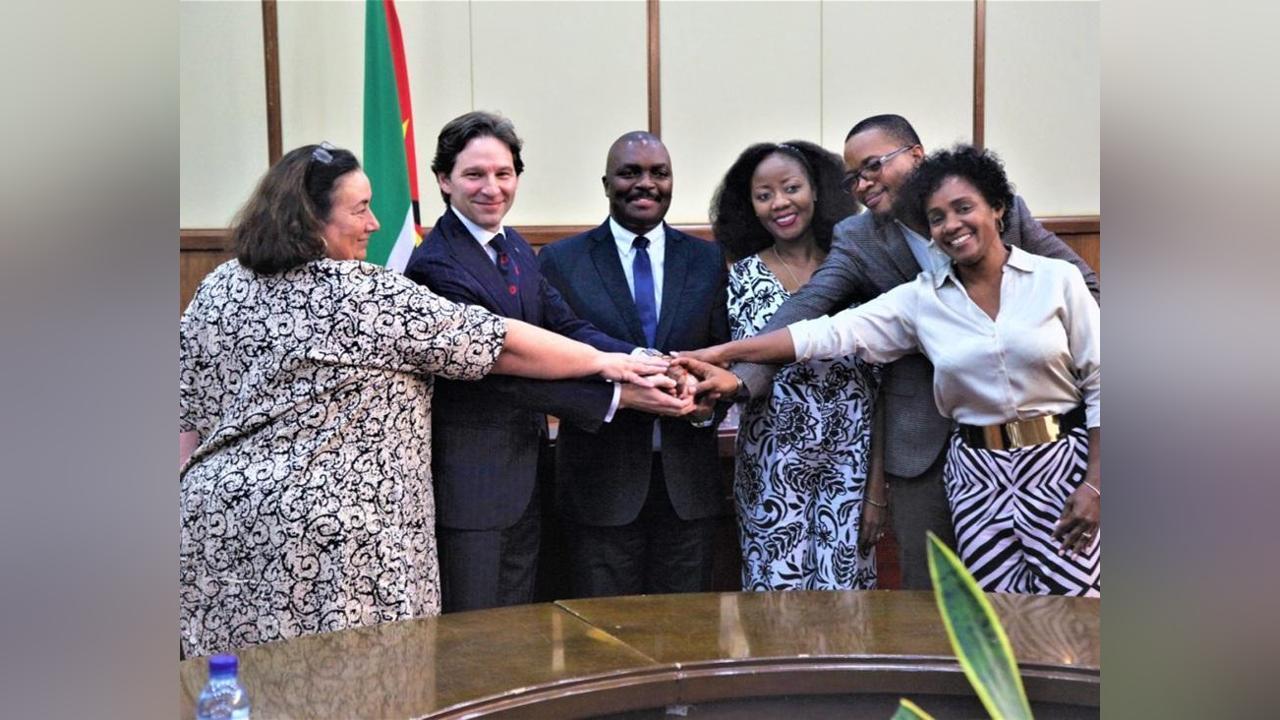Africa-Press – Mozambique. The European Union (EU) announced on Friday that it would provide financial support to two civil society organisations that will provide assistance to the technical committee created within the scope of the political dialogue aimed at state reforms in Mozambique.
“Our financial support is intended for the project of two civil society organisations […]. It is indirect support to the committee in the sense that, with reasons for the way we work, we believe that the quickest way is to act through this project of the two organisations that we are ready to support financially,” announced the European Union ambassador to Mozambique, Antonino Maggiore, in Maputo.
Maggiore said that the EU would support the Institute for Multiparty Democracy (IMD) and the Civil Society Support Mechanism Foundation (MASC), organisations with a project that aims to provide technical assistance in different areas to political parties and other members of the Technical Committee.
“The EU believes in this political process, and considers it to be a unique and historic opportunity for the country to face challenges and modernise the country through reforms. We therefore welcome this entirely Mozambican process, which is a process promoted and achieved by political parties with the inclusion of civil society,” said the ambassador, voicing the hope that the ongoing dialogue process would stabilise the country.
At stake is the political commitment to pacify Mozambique after the 2024 general elections, which was transformed into law by the Mozambican parliament and includes the establishment of a technical committee of 21 members – 18 from the parties and three appointed by civil society – to operationalise the political dialogue and discussions on state reforms, with a budget of 91,471,200 meticais (€1.3 million), to be provided by the government and the parties, more than half of which will be for attendance fees.
On April 30, when announcing the creation and approval of the terms of reference for the selection of three civil society figures, within the scope of the political dialogue with the leaders of the party formations that signed the political commitment of March 5, the President of Mozambique, Daniel Chapo, stated that the members of civil society must be people of “recognized merit, responsibility and competence”.
The law of political commitment for the inclusive national dialogue states that the three individuals will be nominated by the technical committee after proposals from civil society.
On May 29, the More Integrity Electoral Consortium, which brings together Mozambican civil society organizations, proposed a public competition to select the three civil society figures to join the technical committee, within the scope of the ongoing political dialogue.
Following criticism from the More Integrity Electoral Consortium, the Mozambican president said on May 30 that no Mozambican was excluded from the political dialogue.
Mozambique has experienced almost five months of social tension, with demonstrations, initially in protest against the election results of October 9, called by former presidential candidate Venâncio Mondlane, resulting in the deaths of around 400 people and the destruction of property.
The Mozambican government has confirmed at least 80 deaths, in addition to the destruction of 1,677 commercial establishments, 177 schools and 23 health units during the demonstrations.
Mozambican parties with seats in parliament and in municipal and provincial assemblies signed a political commitment with the president of Mozambique on March 5th, aiming at state reforms, which was later transformed into law by the Mozambican parliament.
Mondlane and Chapo met for the first time on March 23, when a commitment was made to end the post-election violence in the country. They met again on May 21, again with pacification on the agenda.
For More News And Analysis About Mozambique Follow Africa-Press






